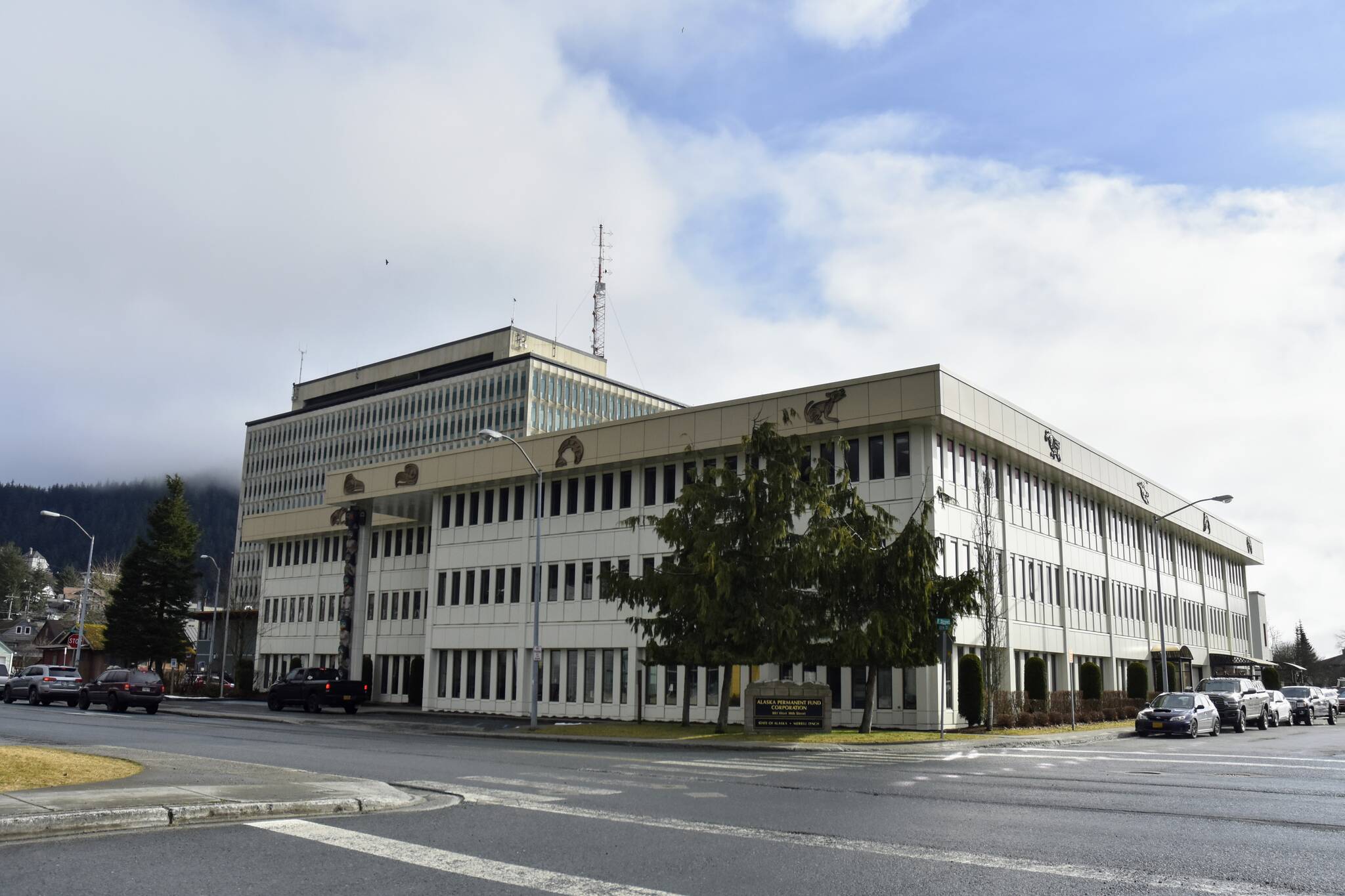Correction: A previous version of this article incorrectly stated the amount of assets owned by the Alaska Permanent Fund Corporation in Russia. The number is 0.2%, not 2%. This article has been updated to reflect the change. The Empire regrets the error.
This story has been updated to include additional information.
Alaska lawmakers are urging Gov. Mike Dunleavy and the Alaska Permanent Fund Corporation to divest from any assets the state has in Russia following the invasion of Ukraine.
The six-member Senate Democrat caucus issued letters Monday evening urging the state to break all ties with Russia and on Tuesday Reps. David Nelson, R-Anchorage, and Zack Fields, D-Anchorage, signed a similar letter.
“Russia is not an American ally. It is a destabilizing force throughout the world. These companies have been deemed by our U.S. Department of Treasury to either contribute to the destabilization, or are important enough to Russia’s economy that economic isolation is viewed as a national security imperative,” the letter to APFC said.
According to a Feb. 25, news release from APFC, Russian investments represent 0.2% of the fund’s assets, roughly $162 million. According to APFC documents, the fund has significant investments in Russian state-owned resource companies Gazprom and Lukoil.
In an email, APFC spokesperson Paulyn Swanson said the corporation has received the letter from Senators and is preparing a response.
“APFC is keenly aware of the developing situation with regards to Russia and Ukraine and is assessing impacts to the portfolio during these dynamic and unpredictable times,” Swanson said. “APFC is closely monitoring the events that are still unfolding with regards to Russia and is analyzing the appropriate response.”
Swanson said APFC has no record of having divested due to political action unless required by federal law.
[Alaska’s lawmakers seek to punish Russia]
The caucus sent two extremely similar letters. The letter to APFC urges the corporation to divest assets while the letter to the governor urges Dunleavy to support that effort, as well as review state contracts to ensure Alaska isn’t doing business with Russian state-owned entities. The letter sent to Dunleavy also urges the Office of Information Technology to focus on protecting state resources from Russian cyberattacks.
“Further,” the letter to the governor said, “we urge you to provide appropriate support and assistance to Ukrainians both here at home and abroad. In particular, Alaska should be prepared to welcome Ukrainian refugees fleeing the Russian invasion.”
In an interview with the Empire, Dunleavy spokesperson Jeff Turner noted Alaska already accepts refugees and refugee resettlement is overseen by the U.S. State Department. Turner referred questions regarding divestment to APFC.
The letters were initially drafted by Sen. Bill Wielechowski, D-Anchorage, who said that while APFC has declined similar requests to divest in the past, he cited a provision in state law that compelled the state to do all it can to avoid nuclear war. The letter cites Alaska Statue
Speaking to reporters Monday, Wielechowski and Senate Minority Leader Tom Begich, D-Anchorage, cited Russian President Vladimir Putin’s recent decision to put his country’s nuclear forces on high alert.
“Now is the time to divest from companies that are threatening our very existence,” Begich said.
The letter Nelson and Fields didn’t cite the state’s nuclear freeze policy, but urged APFC to divest from Russian assets due to the invasion. Fields and Nelson noted that Russian banks have been targeted for sanction and investments in Russia are increasingly risky.
“Other APFC investments in Russian banking and energy companies appear to be on the sanctions list, raising questions about compliance and risk with a rapidly changing environment in international law,” Nelson and Fields’ letter said.
According to the Associated Press, several states have signaled the desire to divest their assets from Russia. Lawmakers in Georgia and Pennsylvania said they would seek to have state pension funds divested from Russia, AP reported, and Washington, Colorado, New York and California said they would stop doing business with Russia.
Alaska Airlines announced Tuesday it was temporarily suspending its relationship with its Russian partner, S7, AP reported. The airline had already suspended its partnership with Aeroflot, Russia’s largest carrier.
Some of Alaska’s gubernatorial candidates weighed in on the matter as well. In a statement, former Gov. Bill Walker, who is running as an independent, urged APFC to divest and said the next U.S. Navy base should be placed in Alaska.
Walker and several Alaska lawmakers —notably the Congressional delegation — have pushed to have more energy development done in the state, saying it would increase America’s independence.
Democratic candidate for governor Les Gara said on social media Alaska can and should divest from Russian assets.
“Though we can’t control or know most investments in mutual funds we own, we can morally divest from our direct holdings in Russian corporations,” Gara said.
On Monday, U.S. Rep. Don Young, R-Alaska, introduced legislation that would allow the U.S. to seize Russian vessels in American waters.
• Contact reporter Peter Segall at psegall@juneauempire.com. Follow him on Twitter at @SegallJnuEmpire.

